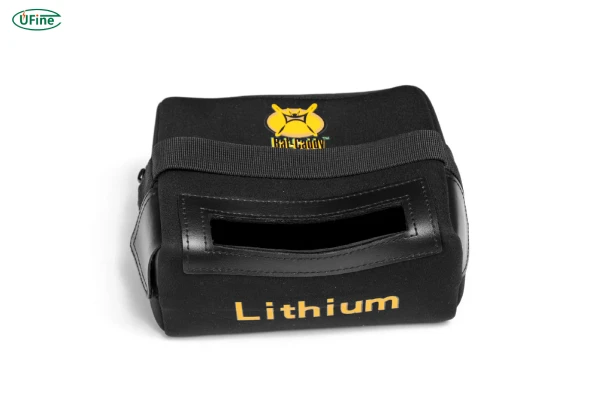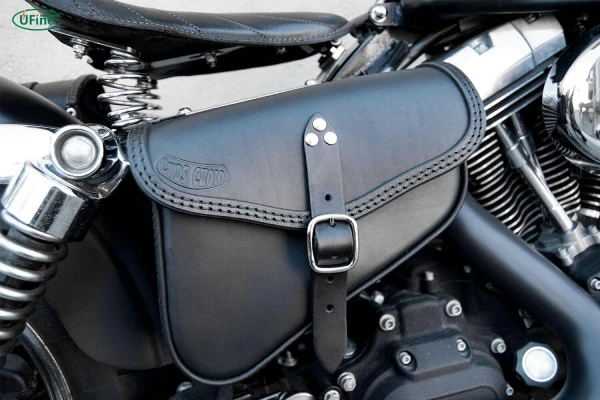Ever heard of a battery bag and wondered why people use it?
A battery bag is more than just a pouch. It’s a protective shield for your batteries. It helps prevent accidents, ensures safe transport, and keeps your devices ready to go. Whether you’re a traveler, drone pilot, photographer, or just someone with a drawer full of spare batteries—a battery bag can save you time, money, and stress.
In today’s world, we rely on batteries more than ever. From drones to cameras to RC cars, power is everywhere. But with power comes risk. Damaged or improperly stored batteries can cause short circuits, fires—or worse.
That’s why having a battery bag isn’t just smart. It’s essential.
Part 1. What is a battery bag?
A battery bag is a specialized pouch or case designed to store and transport batteries safely. Most are made from fireproof and shock-resistant materials. Their goal? To stop accidents before they happen.
These bags go by many names:
- LiPo battery bag
- Fireproof battery bag
- Battery safety pouch
- Travel battery case
No matter the name, the function is the same—protect your batteries and everything around them.
Common materials include:
- Fire-resistant fabric (like fiberglass or silicone-coated fiberglass)
- Insulated inner linings
- Tough outer shells
These materials help contain fires, reduce heat transfer, and absorb shock during travel.
Key Takeaway: Not all “battery bags” are equal. A cheap, uncertified pouch might as well be a Ziploc bag in an emergency.
Part 2. Why go you need a battery bag?
Still wondering if you really need one? Let’s break it down:
Prevent Short Circuits and Fires
Loose batteries in your bag or toolbox can touch metal objects. That’s how short circuits happen. A battery bag isolates each battery to reduce this risk.
Protection from Damage
Batteries don’t like being dropped, crushed, or exposed to moisture. A good battery bag cushions and shields your batteries.
Airline Safety Compliance
If you fly with batteries—especially LiPo batteries—you’re often required to store them in a TSA-approved battery bag. Airlines and the FAA have rules to prevent fires in-flight.
Whether you fly often or just want peace of mind, a battery bag is a wise investment.
Part 3. Types of battery bags
Not all battery bags are the same. Different users have different needs.
A. Fireproof LiPo Bags (For High-Risk Batteries)
Best for: Drone enthusiasts, RC car hobbyists
Key Features:
- Double-layered flame barrier
- Ventilated design (releases gas without spreading fire)
- Compact & portable (fits 1-2 large LiPo packs)
Example Use Case:
A racing drone pilot stores 6S 1300mAh LiPos in a Lumenier LiPo Guard Bag between races. Even if one battery puffs up, the bag prevents a pit-area disaster.
B. TSA-Approved Travel Battery Cases
Best for: Frequent flyers with camera/drone gear
Must-Have Features:
- Hard-shell exterior (crush-proof)
- Fireproof compartments (individual slots for each battery)
- Clear labeling (for airport security checks)
Pro Tip: Look for FAA-compliant cases with pressure-release valves to handle altitude changes.
C. Multi-Battery Storage Solutions
Best for: Photographers with dozens of camera batteries
Why It Matters:
- Anti-static dividers prevent contact between terminals
- Modular designs let you customize storage
Real-World Scenario:
A wedding photographer carries 8 Sony NP-FZ100 batteries in a ThinkTank Photo Battery Holder. Even in a packed bag, zero risk of accidental discharge.
D. Industrial-Grade Battery Containers
Used in: Medical equipment, military, EV battery transport
Next-Level Safety:
- Lockable steel enclosures
- Thermal sensors for early warnings
Part 4. Critical features you must look for
When buying a battery bag, don’t just go for looks. Check for these key features:
1. Fireproof Certification
- Look for: UL, CE, or IEC certification
- Avoid: “Fire-resistant” claims without testing proof
2. Puncture-Resistant Materials
- Best: 600D nylon with reinforced stitching
- Worst: Thin polyester (splits under pressure)
3. Secure Closure Mechanisms
✔ Magnetic seals (quick access)
✔ Double-zipper designs (prevents accidental openings)
4. Proper Ventilation
- Why it matters: Trapped gas = potential explosion
- Ideal design: Mesh vents with flame filters
5. Shockproof Padding
To absorb bumps and drops.
6. Size Options
Small pouches for travel or large bags for workshops.
Part 5. Best battery bags on the market
Let’s explore some top-rated battery bags available in 2025:
Lumenier LiPo Safe Bag
- Pros: Military-grade fire resistance, trusted by drone racers
- Cons: Higher price point
- Best for: Drone pilots
Neewer Battery Organizer
- Pros: Great for camera batteries, labeled compartments
- Cons: Not designed for LiPo
- Best for: Photographers and filmmakers
TSA-Approved Battery Case by UGREEN
- Pros: Flight-safe, waterproof, shockproof
- Cons: Smaller capacity
- Best for: Air travelers with compact gear
Part 6. How to use a battery bag properly
Buying a battery bag is only half the job. You need to use it correctly:
- Store Similar Batteries Together: Keep LiPo, Li-ion, NiMH batteries separated.
- Avoid Overfilling: Overcrowded bags can cause pressure damage.
- Check for Damage: Worn-out bags may lose fireproof properties.
- Label Your Batteries: Especially if traveling. It speeds up airport checks.
And remember—never charge a battery inside the bag unless it’s specifically designed for that purpose.
Part 7. Battery bag dafety tips
Your battery bag is only as good as how you use it. Here are a few more tips:
- Don’t Charge Inside the Bag: It’s dangerous unless the bag says it’s okay.
- Avoid Heat and Moisture: Store in a cool, dry place.
- Check for Rips and Tears: Replace damaged bags immediately.
- Keep Bags Away from Kids and Pets: Batteries and children don’t mix.
A little care goes a long way in battery safety.
Part 8. Are battery bags mandatory for air travel?
Yes—and no.
The TSA and FAA require loose lithium batteries to be carried in your hand luggage, not checked baggage. While a battery bag isn’t always mandatory, it’s highly recommended, especially for LiPo or spare drone batteries.
Many airlines specifically ask for fireproof battery pouches. Some even refuse boarding if you don’t use one. So if you’re flying with spare batteries, don’t take risks.
Real traveler tip: Put all your batteries in a labeled battery bag. Show it during security checks. You’ll get through faster—and safer.
Part 9. DIY vs. buying a battery bag
Thinking of making your own battery bag? Think again.
DIY Battery Storage
You might use a metal tin or thick cloth pouch. But these don’t offer real fire protection. In fact, metal containers can make fires worse by trapping heat.
Certified Battery Bags
- Tested for fire resistance
- Built to last
- Comply with travel regulations
A good battery bag doesn’t cost much more than $15–$30. That’s a small price to pay for peace of mind.
Part 10. FAQs
Can I use a regular pouch for batteries?
Not recommended. Regular pouches offer no fire or short-circuit protection.
Do battery bags expire?
They don’t “expire,” but worn-out ones should be replaced. Fireproof lining can degrade over time.
Are battery bags waterproof?
Many are water-resistant, but not all are fully waterproof. Check the label.
Can I charge LiPo batteries inside the battery bag?
Usually not. Charging inside most battery bags is unsafe unless the bag is specifically rated for charging.
What size battery bag do I need?
Related Tags:
More Articles

How to Choose the Best Floor Scrubber Battery for Commercial Cleaning?
Selecting the ideal floor scrubber battery ensures a long runtime, rapid charging, and minimal maintenance for efficient commercial cleaning operations.
Battery for Blower vs Battery for Leaf Vacuum: Which One Should You Choose?
Battery for blower vs leaf vacuum—learn the key differences in power, fit, and runtime to choose the right battery for your outdoor tool needs.
How to Choose the Right Battery for Blower?
Choosing the right blower battery? Consider voltage, capacity, chemistry & usage. This guide helps match the best battery for peak performance.
How to Choose the Best Insulated Battery Box for Lithium Batteries?
Choosing the Best Insulated Battery Box for Lithium Batteries? Discover key factors such as size, material, and safety for optimal protection and performance.
7 Critical Elements on a Lithium Battery Shipping Label
What must be on a lithium battery shipping label? Learn 7 key elements to ensure safety, legal compliance, and correct handling across all transport modes.





